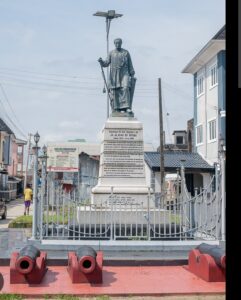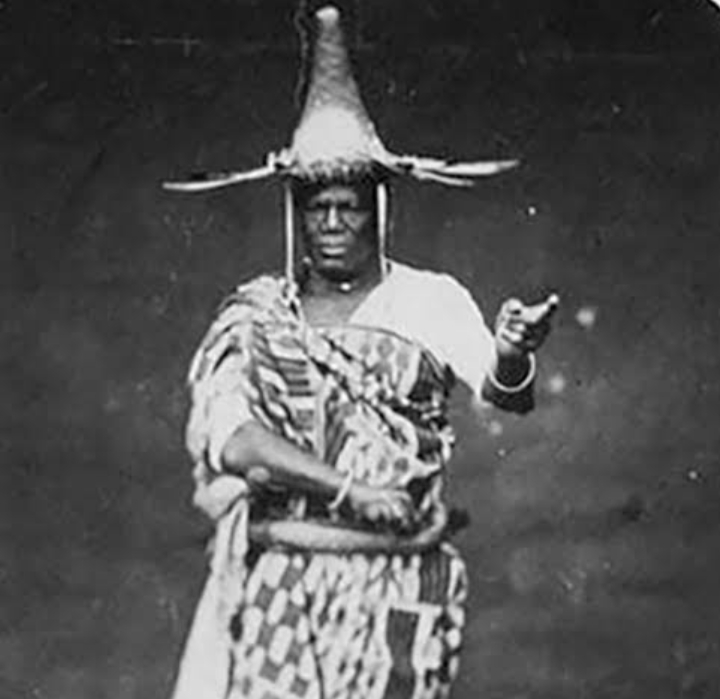
King Jaja of Opobo, originally known as Jubo Jubogha, was a prominent West African ruler and merchant in the 19th century. Born around 1821 in Umuduruoha, Amaigbo, in present-day Imo State, Nigeria, he was of Igbo origin. He was captured as a young boy and sold into slavery, eventually ending up in Bonny (a major trading city in the Niger Delta). There, he rose to prominence through his intelligence and business acumen, eventually becoming one of the most powerful figures in the region.
Rise to Power in Bonny
Jaja was bought by the Anna Pepple House, one of the trading houses in Bonny. Over time, he earned his freedom and became the head of the house. Under his leadership, Anna Pepple House grew stronger, leading to a rivalry with the Manilla Pepple House, another dominant trading house. This rivalry created political tension in Bonny.
Jaja’s influence in Bonny’s palm oil trade increased as he established direct relationships with European traders, bypassing traditional middlemen. This control over trade made him immensely wealthy and powerful, but it also caused friction with other leaders in Bonny.
Founding of Opobo
In 1869, following disputes with rival factions in Bonny, Jaja and his supporters left the city and founded a new kingdom called Opobo, named after the Igbo deity Opubo. The new kingdom was strategically located at the mouth of the Imo River, allowing Jaja to dominate the palm oil trade routes in the region.
Opobo quickly became a major commercial hub, with Jaja exercising full control over trade with Europeans. He ensured that all traders dealing with the kingdom went through him, establishing himself as a central figure in the economy of the Niger Delta.
Relations with the British
Jaja’s success and independence eventually brought him into conflict with British colonial interests. The British sought to expand their influence and monopolize trade in the Niger Delta. They viewed Jaja’s control of trade as an obstacle to their ambitions. In 1887, British officials invited Jaja to a negotiation meeting under false pretenses. Upon his arrival, he was arrested and exiled to St. Vincent in the West Indies.
After years of lobbying and international pressure, Jaja was allowed to return to Opobo in 1891, but he died en route under suspicious circumstances.
Legacy
King Jaja of Opobo is remembered as a visionary leader and a symbol of resistance against colonial domination. His story highlights the complexities of African-European relations during the era of colonialism and the ingenuity of African leaders in navigating the challenges of the time. Today, Opobo remains a testament to his enduring legacy.





